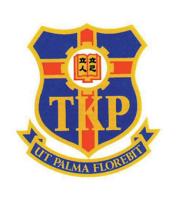| Language Policy |
The language policy of our school includes the following three aspects:<br>1. To match the students’ ability in learning through English, our school arranges some classes of students at the junior levels to learn through English in three specific non-language subjects. Our school makes sure that when the students' study at the senior levels, they will have a chance to choose to study those non-language subjects through English or Chinese.<br>2. To promote a reading culture among students, morning reading lessons are arranged. Our school also encourages students to join a wide range of language activities inside and outside school in order to enhance the quality of teaching and the learning effectiveness of the three language subjects, English, Chinese and Putonghua. With the collaboration of English, Chinese and other content subjects, reading across the curriculum is promoted. <br>3. Our school arranges various extended learning activities in the teaching of three specific non-language subjects, so as to meet the students’ ability and progress in learning through English, as well as their needs, interests and aspirations. |
| Learning and Teaching Strategies |
To cultivate students’ ability to learn through making inquiries and foster their habit of self-directed learning, the delivery of differentiated instruction have been implemented at junior levels. Meanwhile, diversified learning modes, with e-learning covered, are also carried out in the classroom in order to enhance students’ motivation in learning, which can in turn make students more proactive in making continual improvements based on teachers’ feedback. |
| School-based curriculum |
1. Electives: 3X. In the 2023/2024 academic year, students of senior forms, with their own interest and ability taken into account of, can choose among three elective subjects and Applied Learning Subjects based on a wide range of options offered. <br> 2. Curriculum highlights: At junior levels, the school-based curriculum has implemented in the following key learning areas: Chinese Language, English Language, Mathematics, Integrated Humanities, Science and Design and Technology. Under the school-based curriculum, adaptations have been made to the teaching materials in order to have students of different abilities taken care of. To further extend students’ learning experiences, lessons on moral education are regularly arranged for students of all levels. |
| Approach to Catering for Learner Diversity |
We have a special team of teachers taking care of the students with special education needs; we have employed professionals from the outside to support the students in need. |
| Approach to Integrated Education |
We are committed to developing an inclusive culture through the Whole School Approach to support students with special educational needs. Resources are deployed to provide appropriate and diversified support to these students so as to enhance their learning and adjustment to the school life. We treasure home-school cooperation by establishing regular communication channels to facilitate parents’ participation in the formulation of support strategies for students with special educational needs. |
| Education Support for Non-Chinese Speaking (NCS) Students |
|
| Home-School Co-operation |
The Parent-Teacher Association promotes cooperation between parents and the school. Talks and workshops are held every year. This allows the parents to know well about the techniques on child rearing. There are two parents' days every school year for parents and teachers to discuss face-to-face the students' academic performance and personal growth. Apart from the yearly publication, monthly newsletters are regularly sent to the parents by the Parent-Teacher Association, so that the parents can better understand our school. When there is a need, eClass Parent App messages will be sent to parents for prompt dissemination of information. |
| School Ethos |
Growing up in a supportive learning environment, our students are polite and well-behaved. We aim at creating a pleasurable and harmonious campus and cultivating students to achieve the goal 'To be good and be a good role model for others'. In the meantime, we strive to build up a caring and loving school culture. We encourage students to have lunch at school and a wide range of activities are organized for them after lunch. |
| School Development Plan |
To cater for learner diversity, increase students’ self-confidence and resilience, differentiated instruction will be implemented in 2022-2025. Our teachers are encouraged to attend workshops, seminars and professional development programmes. |
| Teacher Professional Training and Development |
We highly value the development of our teachers so as to meet the development of the school. Three staff development days are held to cater for the major concerns of the school year. All subject panels enthusiastically practice "Collaborative Lesson Planning" and "Peer Class Observation". We encourage individual teachers to do continuing professional development and are willing to make necessary administrative arrangement to cater for their needs. Besides, through our sponsoring body's training program for new teachers, new teachers in our school can easily integrate themselves into our own team of professional teachers. To meet the need of the new secondary school syllabus and the new requirement of medium of instructions and catering for students with special educational needs set by the EDB, all of our teachers have their value added and their teaching effectiveness enhanced through getting continuing professional development. |
| Life-wide Learning |
To ensure an all-round development of our students, besides providing more than 35 types of extra-curricular activities for them to participate in, our school has 11 Salesian Youth Groups and other self-governed students’ organizations like the Student Union, the Prefects’ Association and Rotary Youth Group. In addition, community events, charity activities and ‘multi-intelligence challenge’ camps are regularly organized for students who then can have their potential developed and life experiences enriched through participating in them. |
